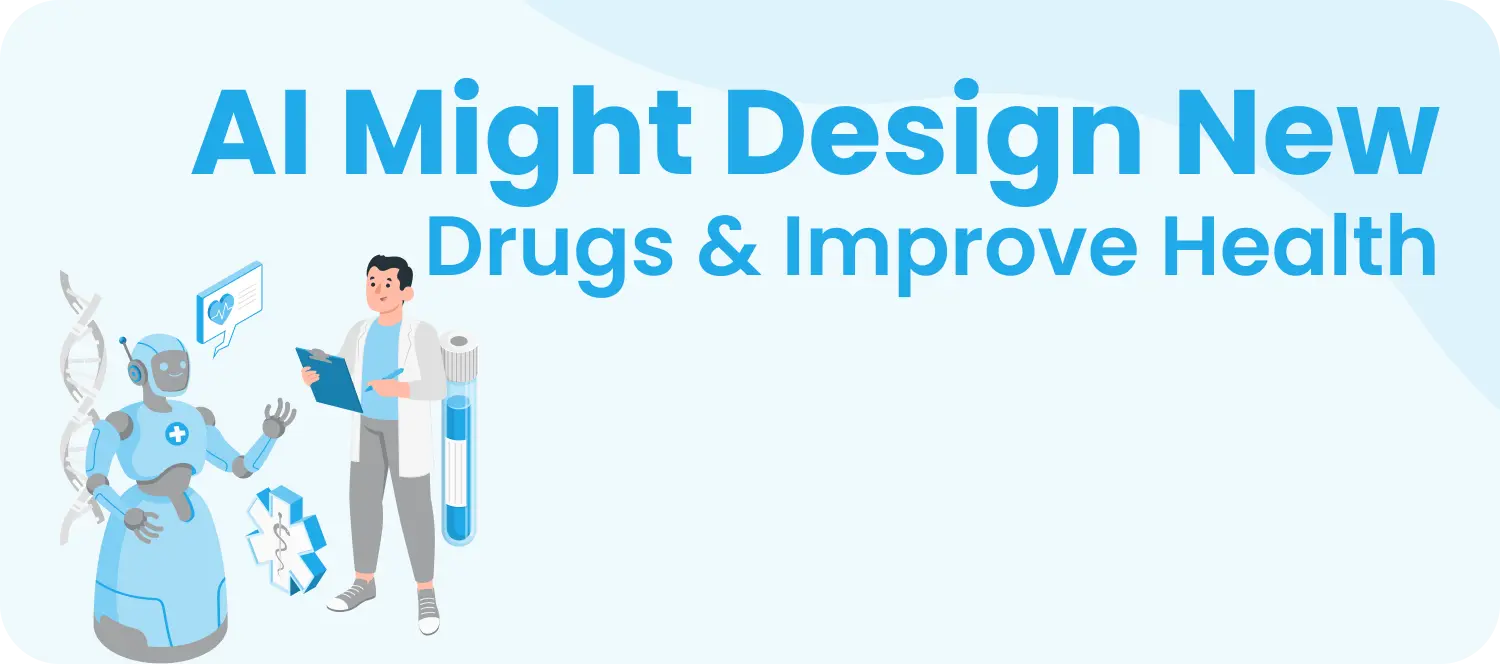

Are you ready to disrupt with AI? Join our Hackathon today! Click to Register
By WebOsmotic Team | Published on August 27, 2024
Summarize Article

Table of Contents
ToggleGenerative AI transforms healthcare by automating diagnoses, personalizing treatments, and streamlining data management. Using Generative AI in Healthcare helps discover innovative solutions for drug discovery, personalized medicine, and improved patient care. It can analyze vast datasets, predict potential drug candidates, and personalize treatment plans.
Generative AI is being applied in several key areas of healthcare, each with its own set of advantages. In clinical decision support, for instance, these models can analyze vast amounts of patient data and medical literature to provide personalized treatment recommendations. A recent study published in Nature Medicine found that an AI-based clinical decision support system was able to identify high-risk patients with sepsis with a sensitivity of 91% and a specificity of 87%, outperforming human clinicians.
In drug discovery and development, generative AI is accelerating the identification of promising drug candidates, potentially shaving years off the research and development process. Researchers have used generative AI models to generate novel molecular structures that exhibit desired therapeutic properties, a process that would traditionally take months or even years to complete manually.
Generative AI is also being used in medical imaging analysis, where it can assist radiologists in detecting and diagnosing various conditions with greater accuracy and speed. A study published in Nature Medicine showed that an AI-based system was able to detect breast cancer on mammograms with a sensitivity of 90% and a specificity of 85%, outperforming human radiologists.
Moreover, generative AI is being leveraged to enhance patient engagement and education. By generating personalized, easy-to-understand content, these models can help patients better understand their conditions and treatment options, leading to improved health outcomes. A survey by the American Medical Association found that 75% of patients preferred to receive health information from their providers in a personalized, conversational format, which generative AI can facilitate.

Despite the growing adoption of generative AI in healthcare, there are valid concerns about its readiness and reliability. A recent survey by McKinsey found that only 11% of healthcare organizations are using AI at scale, with the majority citing concerns about the “robustness and reliability” of these systems.
Furthermore, the lack of transparency and explainability in many generative AI systems is a significant concern for healthcare providers and regulatory bodies. Without a clear understanding of how these models arrive at their outputs, it becomes challenging to trust and rely on their recommendations, especially in high-stakes medical decisions.
Additionally, the integration of generative AI into healthcare workflows raises ethical and regulatory concerns. A study by the Brookings Institution found that only 26% of healthcare organizations have a clear strategy for the ethical use of AI, indicating a significant gap in the industry’s readiness to address these issues.
To address these concerns and unlock the full potential of generative AI in healthcare, a cautious and thoughtful approach is required. Collaboration between AI developers, healthcare providers, and regulatory bodies is essential to ensure the responsible and ethical use of these technologies.
Rigorous testing and validation procedures must be implemented to assess the robustness, accuracy, and fairness of generative AI systems before they are deployed in clinical settings. A study published in the Journal of the American Medical Informatics Association found that a comprehensive testing and validation framework, including data quality checks, model performance evaluation, and fairness assessments, can significantly improve the reliability and trustworthiness of AI-based healthcare solutions.
Transparency around model development and limitations is also crucial to build trust and foster a deeper understanding of these technologies. A report by the Organisation for Economic Co-operation and Development (OECD) recommends that AI systems used in healthcare should be accompanied by clear explanations of their underlying logic, training data, and potential limitations, to enable healthcare providers and patients to make informed decisions.
Additionally, multidisciplinary teams, including healthcare professionals, ethicists, and legal experts, should be involved in the development and deployment of generative AI solutions to ensure that they align with ethical principles and regulatory guidelines. A study published in the Journal of the American Medical Association found that the involvement of diverse stakeholders in the design and implementation of AI systems can help mitigate the risks of bias, privacy breaches, and other ethical concerns.

Want to R&D Your Idea Into AI Reality? Contact Our Industry Experts Now and Get Your First Free Consultation.
Generative AI holds immense promise for transforming healthcare, but its readiness and reliability are not yet universally accepted. By addressing valid concerns and taking a collaborative, responsible approach to adoption, the healthcare industry can harness the power of this technology to improve patient outcomes, accelerate research and development, and enhance the overall delivery of care.
However, the path forward is not without its challenges. Rigorous testing, transparency, and multidisciplinary collaboration will be crucial to ensure that generative AI is deployed in a manner that prioritizes patient safety, ethical considerations, and regulatory compliance. The future of generative AI in healthcare is bright, but it will require a thoughtful and deliberate approach to realize its full potential.
Unlock exclusive insights and expert knowledge delivered straight to your inbox